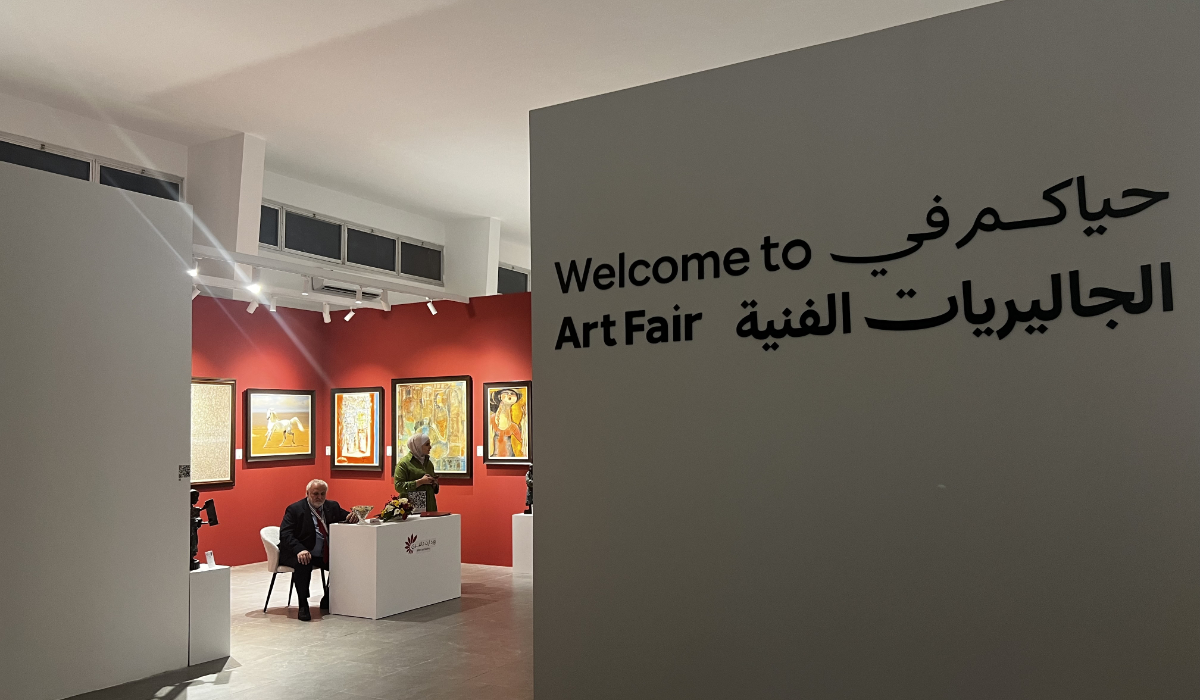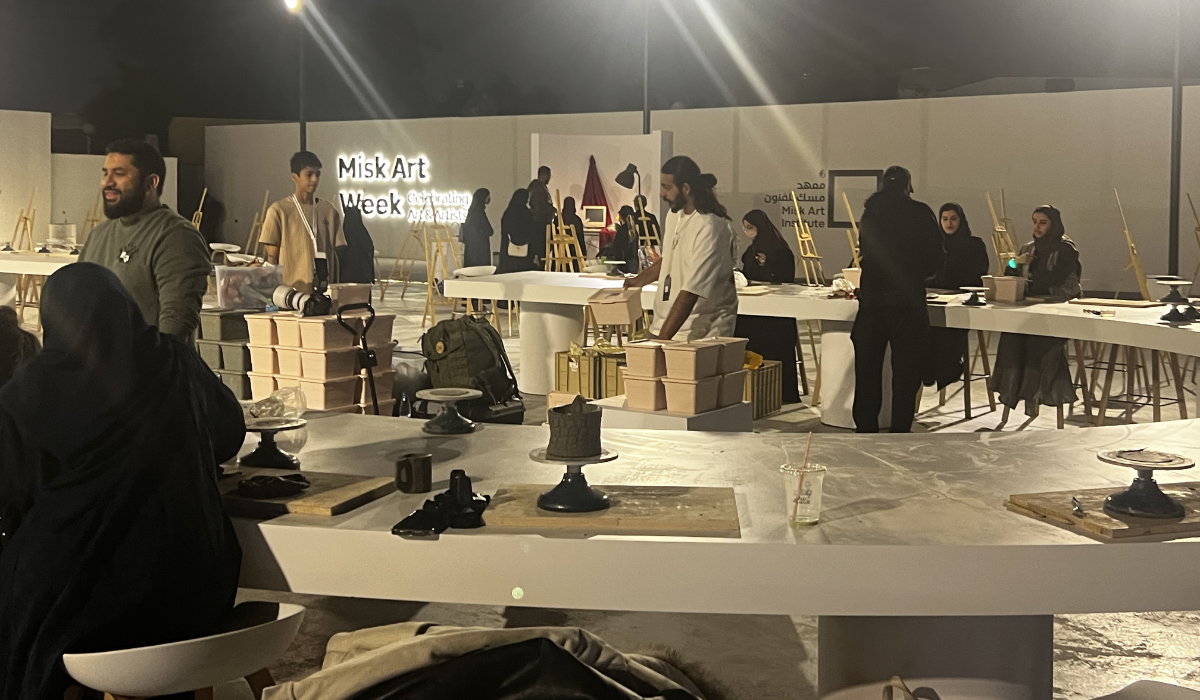RIYADH: The eighth annual Misk Art Week began on Thursday and runs until Dec. 10, featuring a spectacular display of what is all the latest on the local art scene.
Enthusiasts rushed to Prince Faisal bin Fahd Arts Hall and its neighboring venue to explore new exhibitions, art fairs, markets, and educational programs, while the soothing sounds of oud music added charm to the evening

The interactive experience invites visitors to explore and create parallel worlds in real-time through generative artificial intelligence. (AN photo)
Ibrahem Al-Suhaibani, executive director for marketing, communication, and user experience at Misk Art Institute, told Arab News: “We do have artists who are now establishing their career in the art and design market.
“So, we see ourselves supporting and bridging between the establishment and the mature galleries, and in between we support the artists through all the value chain.”
HIGHLIGHTS
• At Misk Art Week, Canadian art studio Iregular is presenting ‘As Water Falls,’ a free-flowing digital waterfall that continuously evolves.
• ‘Alternative Realities’ invites visitors to explore and create parallel worlds in real-time through generative artificial intelligence.
• The ‘Obsolete Technologies’ showcase features works from local and international artists.
This year’s event is curated around the theme of art and technology, pushing artists to contemplate the aspects of digital and media through an artistic lens.

The educational program and mentorship sessions are also part of the Institute’s strategy to educate, enable, and encourage new generations of artists. (AN photo)
Al-Suhaibani added: “We tackle the topic from different angles: from a research angle, before internet, post-internet, what’s the impact of the technology and the media, how this is helping artists to boost their creativity or even block them in any way, and how they really reveal their creativity after that blocking.”
At the entrance of the space, inspired by how nature is alive and ever-changing, the Canadian art studio Iregular presents “As Water Falls,” a free-flowing digital waterfall that continuously evolves with alternating patterns and visuals that will never be the same for at least 100 years.

The Art Fair space is bigger this year, which features works from 11 Saudi-based galleries including Hewar Art, Mono, Hafez, WRD Art, ATHR, Dawi, and others. (AN photo)
While the digital installation has been presented in seven countries around the world this year, an addition was created especially for Misk Art Week, Al-Suhaibani said, and is being shown for the first time in Saudi Arabia.
Further into the outdoor space, the studio presents “Alternative Realities,” an interactive experience that invites visitors to explore and create parallel worlds in real-time through generative artificial intelligence.

The Art Fair space is bigger this year, which features works from 11 Saudi-based galleries including Hewar Art, Mono, Hafez, WRD Art, ATHR, Dawi, and others. (AN photo)
By combining word prompts and arranging a variety of props at their disposal, participants can craft infinite combinations of realities that range from slightly different to wildly surreal.
Al-Suhaibani said: “We have four shows in total for Misk Art Week, all of them around media and technology in a different format.”

The interactive experience invites visitors to explore and create parallel worlds in real-time through generative artificial intelligence. (AN photo)
The exhibitions include the Masaha Residency’s “Obsolete Technologies” showcase, which features works from local and international artists; the “Seeing Riyadh” exhibition, which explores the city’s significant transformation over the past decade through photography; the Misk Art Grant’s “Digital Civilizations” outdoor exhibit, which taps into phenomena shaped by modern technology; and “The Silent Age of Singularity” exhibition, which investigates the post-internet era.
Al-Suhaibani said: “Riyadh has been evolving in the past few years, especially now with the announcement of the metro starting to operate.

The educational program and mentorship sessions are also part of the Institute’s strategy to educate, enable, and encourage new generations of artists. (AN photo)
“Riyadh is hosting big events and has become a hub. So, we felt this year that we needed to highlight Riyadh, especially at the beginning of the ’80s and ’90s.”
Additionally, the event includes an art book fair featuring a number of international, regional, and local publishers to celebrate the rich and diverse Arab art culture; and an extended art and design market with 92 artists and entities at which the local community can engage, sell, and commission unique works.
“We designed it in a way that anyone walking by the market can see everything. And there is a diversity between painting, photography, sculpting projects, and even design,” Al-Suhaibani said.
The educational program and mentorship sessions are also part of the institute’s strategy to educate, enable, and encourage new generations of artists.
The art fair space is bigger this year, and features works from 11 Saudi-based galleries including Hewar Art, Mono, Hafez, WRD Art, ATHR, and Dawi.
Al-Suhaibani added: “We believe today the market desires to have galleries more specialized to support artists and to showcase their artwork.”
The Misk Art Week mural is also a feature and an interactive space crafted to showcase the creativity of young talents. As children contribute unique visions that are then displayed on a wall, they collectively shape a masterpiece that evolves with each individual contribution. With the help of augmented reality tech, the artwork comes to life in an entirely new dimension.
Misk Art Institute’s goal is to create a cohesive environment in which all artists, regardless of their background, can thrive.




























